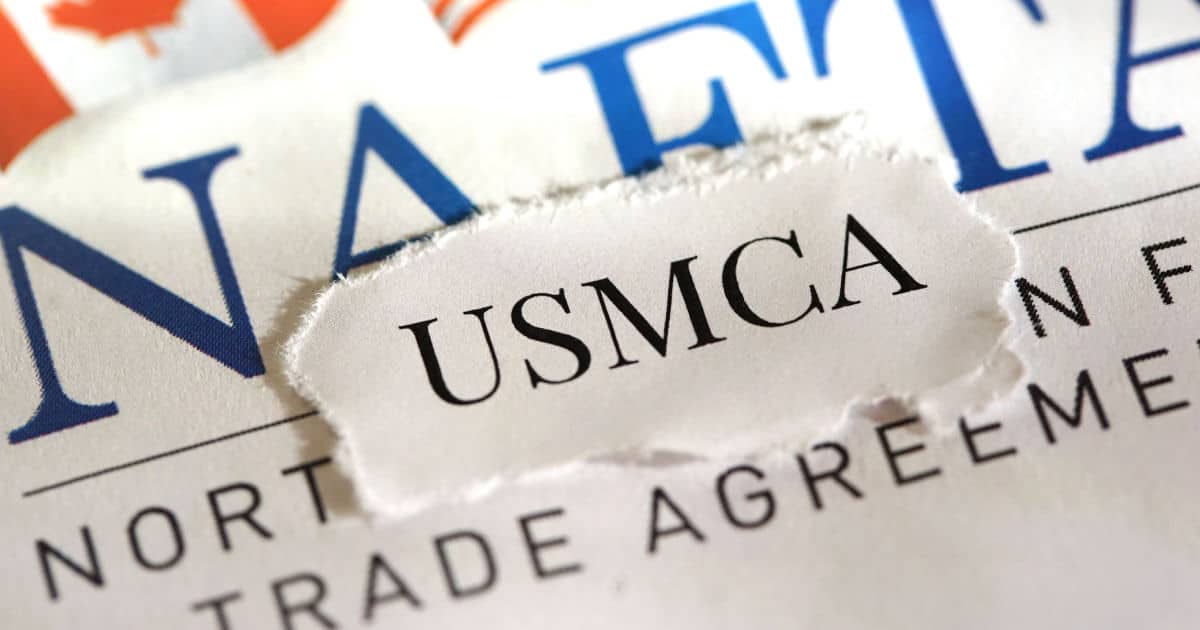1993: The year of grunge music, the introduction of Pentium chips and “Sleepless in Seattle.”
It was also the last time the U.S., Mexico and Canada signed a comprehensive trade agreement. This year, Congress has an opportunity to ratify a new agreement that modernizes trade in North America and strengthens America’s innovation leadership.

California is uniquely positioned to benefit from the USMCA. Trade with Canada and Mexico supports 1.4 million Golden State jobs, and exports of goods and services to these partners accounted for nearly $60 billion in 2017. Industries that will gain from the agreement range from poultry and dairy producers, to automobile manufacturers and agricultural growers, among others. Each of these will face fewer restrictions in foreign markets, and businesses will have greater certainty of accessing Mexican and Canadian consumers.
The USMCA will also fortify the technology sector. The agreement sets the highest standards for intellectual property rights, which protect companies’ valuable ideas, confidential information and work product. Copyrights of creative and recorded works will receive fairer treatment in all countries in which they are available. The term of copyrights will also be extended, allowing authors longer time to protect their work.
Protections will extend to a variety of digital commerce elements, many of which did not exist in 1993. Industrial designs used in advanced manufacturing will receive increased protections from 10 years to 15 years. Agricultural chemicals will be protected longer, from five years to 10 years. And biologic medicines and combinations of pharmaceuticals will receive explicit data protection under the pact for the first time.
The agreement also protects American technology companies by preventing unfair business practices abroad. It prohibits a country from requiring foreign companies to share their valuable source code in order to access a foreign market. Countries are also prevented from demanding that external companies locate servers or hardware within their borders. Thankfully, the USMCA avoids these types of protectionism that could expose American companies to IP theft and business disruption.
In addition to offering clear business protections, the USMCA makes a statement of aspiration that the U.S., Canada and Mexico shall endeavor to share best practices around cybersecurity, data privacy and government use of digital tools and technologies. While there is little detail around this aspiration, and there is no requirement the countries do so, it is nonetheless important because it articulates the validity of these ideas. In this way, the document becomes something more than a simple rulebook for international commerce. It will be the responsibility of the governments to tie actions to these words. Doing so will further strengthen technology and innovation in North America.
In the quarter-century since the passage of NAFTA, digital business has grown to be an important element of international commerce between the U.S., Mexico and Canada. The USMCA offers the American innovation economy greater opportunity to grow its international markets, while preserving and protecting its valuable intellectual property. Congress should move swiftly to ratify the agreement.
Peter Leroe-Muñoz, vice-president of Technology & Innovation Policy, Silicon Valley Leadership Group | August 13, 2019




